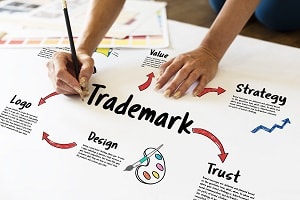“Why can’t I use this name as a trademark? The words in the name are practically generic and there are dozens of trademarks that use them!”
I frequently hear those words from clients who want to use words or terms in their trademarks and the words are already in use for similar goods and are also common words or phrases. Often, those words or terms convey ideas or images the business wants to project as part of their brand. Often, I have to advise that they can’t use them.
A recent case before the Trademark Trial and Appeal Board (“TTAB”) illustrates this issue. The TTAB handles appeals of refusals to register trademarks by the U.S. Patent and Trademark Office (“USPTO”). USPTO refused to register the trademark NONSTOP KNIGHT for a computer game software. The trademark examining attorney found a likelihood of confusion between NONSTOP KNIGHT and NONSTOP GAMES – also in use for computer game software. NONSTOP GAMES was already registered. The applicant/owner of NONSTOP KNIGHT appealed to the TTAB.
The owner of NONSTOP KNIGHT had several arguments:
1. The word NONSTOP is used in dozens of computers software applications.
2. The word GAMES is completely generic and can’t be the basis for protecting a trademark.
3. NONSTOP is at best suggestive of a feature of computer games and could be considered descriptive
4. The word KNIGHT differentiates the two trademarks.
The TTAB upheld the refusal. The above arguments were logical and well taken, but they missed the point.
The real point in this case and any case of trademark infringement is consumer confusion. The legal standard is whether or not there is a likelihood that consumers will be confused by the two trademarks. The courts, and the TTAB, first review the similarity of the goods and found them to be identical. Both were used with video games.
The TTAB next looked at the marks. The TTAB held that despite the use of the word KNIGHT, the main focus of both trademarks is NONSTOP. The court stated:
“In this case, both two-word marks begin with the term NONSTOP and hence have similarities in appearance and sound. Consumers are generally more inclined to focus on the first word, prefix, or syllable in any trademark or service mark, which in this case, are identical.”
The TTAB explained that the first word in a trademark gives the greatest impression and the predominate word in both marks was NONSTOP.
The TTAB dismissed the arguments of the applicant that there were many Nonstops in use and many registered, and that the word NONSTOP is suggestive.
“While we find NONSTOP in registrant’s mark to be suggestive of a feature of registrant’s goods and services, on this record, it is not so weak as to permit the registration of a similar mark for essentially the same goods and services.”
The TTAB upheld the denial. Again, the major focus is not on whether NONSTOP is a weak trademark or that there are other nonstops in use. The real issue was whether the trademarks were so close in their impression on consumer and that their goods were identical. Given those two factors, it was likely that consumers would think that NONSTOP KNIGHT was made by the same company that made NONSTOP GAMES.
In branding, stay away from existing trademarks even if they are weak.
Eric D. Morton is the principal attorney with Clear Sky Law Group. One of his major practice focuses is trademark law – which he taught for three years as an adjunct professor at California Western School of Law. He can be reached at 760-722-6582, 510-556-0367, or emorton@clearskylaw.com.

